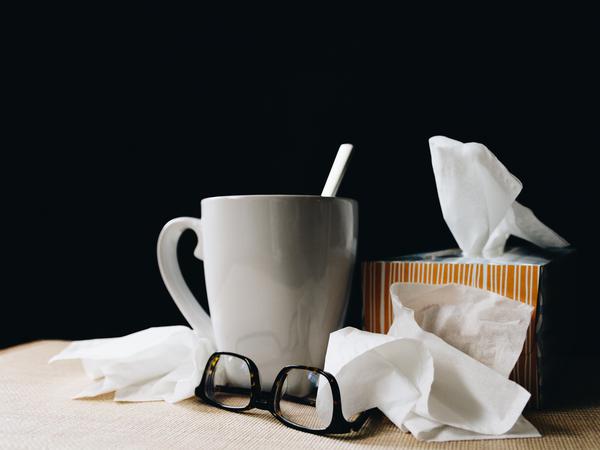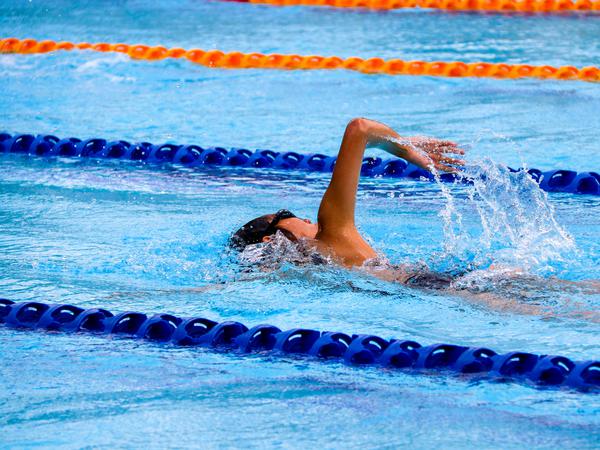Breastfeeding - 34 myths and old wives' tales
The topic of breastfeeding is filled with many half-truths and a lot of half-knowledge. Some of what is said is not true at all and unnecessarily restricts or scares women. These myths suggest that breastfeeding is quite complicated and that I, as a mother, have to sacrifice a lot for it. But, as I will show below, this is not true at all.
My baby cries because I don't have enough milk. / My baby is not getting full.

When a baby cries, it can have many causes. It can be tired, overstimulated, hungry or it needs to go to the bathroom. It may also just want to cuddle and not be alone, i.e. satisfy its need for closeness. Understanding a baby's signals is not always easy in the beginning (or even later). In the vast majority of cases, it's not because the amount of milk is too low. The following applies here: demand regulates supply. So if the baby is laid often and extensively, the amount of milk will also increase.
In times of a developmental spurt or illness, the demand for milk may increase. When breastfeeding on demand, the amount of milk then automatically adjusts to the baby's current needs.
If your baby is not gaining enough weight, has insufficiently wet diapers or you cannot find any other cause for your baby's crying, it is important to take a closer look and seek the support of your midwife or lactation consultant.
For more information about insufficient milk production, see this article from the European Institute for Breastfeeding and Lactation.
I have flat warts, so I have to breastfeed with nipple shields.
Breast cups or nursing caps haven't been around that long. However, there have always been women with flat warts or even inverted nipples and they could breastfeed too. It is important to know that the baby does not drink from the nipple, but from the breast.
Breastfeeding with flat warts sometimes requires more practice for babies. However, with a reclined position, the baby can more easily take a lot of breast tissue into its mouth and thus practice breastfeeding. It can thus suck directly from the breast from the beginning without any aids and adapt to the existing conditions. In the event of difficulties or problems, I would recommend contacting a lactation consultant who can take a look at latching on and offer individual assistance.
For more information on flat warts and inverted nipples in relation to breastfeeding, see the article Breastfeeding with flat warts, inverted nipples and inverted nipples from www.still-lexikon.de. This article describes various preparatory measures during pregnancy, how useful they are, as well as the actual breastfeeding management and the use of aids such as nipple shields.
Get fit for your breastfeeding start in my online course
Learn many important basics about breastfeeding in my online course Still Basics.
I can only breastfeed every four hours.
No, this thesis is outdated. A baby should be latched on 8-12 times in 24 hours to get enough milk and stimulate milk production. This statement has a lot to do with the fear that I might spoil my baby with frequent breastfeeding. I'll write more about that in a moment.
Feeding usually becomes difficult with such a rigid schedule because the baby is hungry much earlier and cries accordingly. As a result, it can't concentrate well on coordinating breastfeeding with sucking, swallowing and breathing.
You can also read more about breastfeeding on demand in my article About Bre astfeeding on Demand.
When I breastfeed my baby on demand, I spoil him and he never becomes independent.
As I wrote in another article, breastfeeding on demand has nothing to do with pampering as we understand it in our society. Directly meeting needs has been proven to have a positive effect on a child's development. It is also proven that a baby cannot be "spoiled" for at least the first year of life. This can be seen in this summary of the study Twenty-year Follow-up of Kangaroo Mother Care Versus Traditional Care in the journal Pediatrics.
Babies whose needs were met quickly and who were therefore also breastfed as needed were found to be more confident. It could not be proven that this makes them "just cling to mom" and not become independent. This is also supported by studies, such as the control study Increased Carrying Reduces Infant Crying: A Randomized Controlled Trial, also published by Pediatrics magazine.
My baby may not "suck" at the breast.
Breastfeeding is much more than just taking in food. Breastfeeding also satisfies other needs, such as those for closeness and security. The strong need to suck, which many newborns have, is also satisfied when they suck at the breast.
If the baby has the breast well in its mouth, i.e. not just "sucking" on the nipple, and the mother has no sore nipples or pain, the baby is theoretically allowed to be at the breast as much as it wants. In the case of pain or sore nipples, the cause should always be sought. For this, I would recommend contacting a lactation consultant.
When I am sick, I have to wean

No. With almost all illnesses, the symptoms do not manifest themselves until well after infection, so the pathogen has probably already been transmitted to the baby anyway. There are only very few diseases for which breastfeeding is not recommended. In these few cases, however, a break from breastfeeding is usually sufficient for the duration of the illness.
Breastfeeding during an illness also causes additional stress for the mom, which slows down the healing process. Various complications can also occur with sudden weaning. If you have any questions, I would recommend contacting a breastfeeding-friendly doctor.
You can read more information on this topic and also specifically on various illnesses in the article Mutter krank - Abstillen meist nicht nötig (Mother sick - breastfeeding usually not necessary) in the Pharmazeutische Zeitung.
Medications are not breastfeeding compatible, so I have to wean if I have to take medication.
Yes, most package inserts for medications state that they must not be taken while breastfeeding. However, in most cases this is simply a safeguard on the part of the pharmaceutical companies, because in most cases there is insufficient research in this regard.
If you really want to know whether a drug is compatible with breastfeeding, I recommend the Pharmacovigilance and Advisory Center for Embryonic Toxicology at Charité-Universitätsmedizin Berlin(www.embryotox.de). The institute is funded with public money and is therefore independent. In case of uncertainty, a doctor or midwife can also call there for advice.
Basically, with medications it is always important to weigh up how necessary it is to take them, whether they are compatible with breast milk and how they might affect the baby. In many cases, it is possible to take the medication for a short time, or there are breastfeeding-compatible alternatives.
I am not allowed to drink alcohol while breastfeeding.

Everyone agrees that alcohol is not good. However, this applies equally to all people, whether breastfeeding or not. The fact is that alcohol passes into breast milk. So far, however, no damage to the infant has been observed, provided it is a small amount and is not drunk every day.
There is also no point in then pumping the milk and discarding it. The milk is formed in a constant exchange. If the alcohol level in the mother's blood drops, it also drops in the breast milk.
For more information on the current state of knowledge, read the article Alcohol and breastfeeding: a summary of the state of knowledge from the European Institute for Lactation and Breastfeeding.
If I smoke, I can't breastfeed

Everyone knows that smoking is unhealthy. The relationship between smoking and breastfeeding in relation to the health of the child has been studied. It was found that the risks from formula feeding are higher than from the breast milk of a smoking mother. Of course, it would still be optimal not to smoke. Passive smoking through clothing and residues on the skin have a greater impact on the child than breastfeeding itself.
For smoking mothers, the less the better. In addition, smoking should be done immediately after breastfeeding, if possible, so that the ingredients can already be broken down as far as possible or the dose can be kept as low as possible.
You can read more about smoking while breastfeeding, as well as the consumption of other stimulants, in the article " Stimulants while breast feeding" at www.still-lexikon.de.
I am not allowed to drink coffee while breastfeeding

Wrong. Moderate coffee consumption does not have a negative effect on the child. In principle, no changes in the child could be detected. In addition, only a very small amount of caffeine passes into breast milk at all. If you are still unsure, you can drink the coffee directly after breastfeeding. After a quarter of an hour, caffeine can be detected in the milk, and after an hour the concentration is at its highest.
With larger amounts of coffee a day (6-8 cups), symptoms such as hyperactivity or less sleep also become apparent in the baby.
I have less milk in the evening, that's why my baby cries more.
No, this is not true in most cases. The fact that many babies cry more in the evening is usually due to the fact that they have to process the impressions and stimuli of the day.
In the summer, I have to give my baby additional water or tea so that it doesn't get thirsty.
Babies are more thirsty in the summer or in hot temperatures, just like we are. However, it is a myth that they would then need extra water or other fluids in addition to breastfeeding. Babies' kidneys are not yet mature and cannot process water adequately.
You can also read this in short form in the article When water poisons babies from Focus online.
The additional need for fluids can simply be satisfied by increased breastfeeding. Your baby will then most likely breastfeed for a shorter time than you are used to. The reason for this is that later in the breastfeeding meal comes milk that is higher in fat and calories. The milk at the beginning of a meal therefore mainly quenches thirst.
My child just doesn't want to breastfeed anymore (at a few months).
The natural weaning age is between two and seven years (which is not to say that everyone breastfeeds that long). When babies "refuse" to breastfeed at a few months, it can be for a variety of reasons. With the help of a lactation consultant, you can talk about different options. For example, a so-called "suckling confusion" may be the cause of existing problems, or a curious child who cannot concentrate well on sucking.
In most cases, such breastfeeding problems can be solved relatively quickly, with or without support, and breastfeeding is more relaxed for you again.
It is also not uncommon for a "breastfeeding strike" to occur, in which the baby refuses the breast partially or completely. Possible causes for this are described in the article How do I recognize a breastfeeding strike, and how should I deal with it? by La Leche Liga (LLL).
Today's formula milk is (almost) as good as breast milk, isn't it?
No. Formula milk will probably never come close to the composition of breast milk. Not even all the components of breast milk and their function in the body are known and researched. Moreover, the composition of milk varies from mother to mother, over the course of breastfeeding and with the age of the child.
Nevertheless, formula milk has improved significantly in recent years and will continue to do so. Anyone who needs to feed with PRE milk should ideally have read various test reports beforehand, as the quality of the different brands varies greatly. It is important to note who conducted the tests and whether they were sponsored.
Pain is part of breastfeeding.
Pain during breastfeeding is always an indication to take a closer look. Most pain is caused by incorrect latching on. Other factors can be clarified with the help of a lactation consultant.
Some women experience pain during breastfeeding shortly after giving birth. In this case, it is important to differentiate whether the pain is related to afterpains or the regression of the uterus, whether the breasts are "getting used to it" or whether there are other causes.
Usually, the initial pain of breastfeeding subsides after a short time. However, I would always recommend contacting a lactation consultant if you experience pain while breastfeeding so that she can look at the attachment and clarify other causes. This can prevent further frustration, stress and pain.
Possible causes of pain during breastfeeding are described in more detail in the article Pain during Bre astfeeding from www.still-lexikon.de.
As a mom, I can't eat flatulent things, fruits, etc. anymore because my baby will get a stomachache or a sore bottom.
Milk is made from the blood. Ingredients from food naturally pass into the blood, but the flatulent effect of cabbage or the like does not. Especially if you also ate a balanced diet during pregnancy, your baby should not get severe colic from breast milk if you ate cabbage.
Most flatulence in babies has other causes, such as when your baby swallows a lot of air. What you can do if your baby has a tummy ache or flatulence, you can read in my article 9 tips for baby tummy ache.
If you still suspect that your baby is reacting to a food, you can specifically omit it for a while and see if your baby has fewer problems with tummy ache as a result.
You can read more tips and information about nutrition during breastfeeding in the article Nutrition during breastfeeding from www.kindergesundheit-info.de.
If my baby is sick, I have to wean him or her.
No, that's not true. Sometimes there is a rumor that babies need a special "diarrhea milk" from the bottle, for example, when they have diarrhea, but as I wrote, this is just a rumor.
Breast milk contains various antibodies and other valuable ingredients that help your baby get healthy. Moreover, sudden weaning during a period of illness would be an additional and unnecessary burden.
I have to wash my breast after and before each breastfeeding session
This is not right either. The breast is not infected by saliva and cannot make your child sick if you do not clean it beforehand.
In exceptional cases, such as bloody sores on the nipple, rinsing after breastfeeding can be useful. In all other cases, however, this is not helpful, but rather unnecessarily stresses the tissue. The easiest way is to simply let the breast milk dry briefly after breastfeeding. Due to the special composition of the milk, this cares for and protects the breast.
In general, the breast should be washed once a day with clean water. You should avoid soap and disinfectants.
I always have to breastfeed both breasts so that my baby gets enough milk.
For most women, it is enough to breastfeed only one breast per feeding. You can let your baby suckle on one side for as long as he or she wants. If you feel that your baby is still hungry after one side, you can of course offer the second breast.
If you breastfeed on both sides, you should start with the second breast at the next feeding. This will stimulate milk production evenly. Otherwise, just keep switching.
You'll probably also notice or feel which side you breastfed last, so there's no need for reminder tapes or any apps for that.
I have small breasts, so I don't have as much milk.
Not true. Breastfeeding ability is not dependent on breast size. In fact, there are very few women who are anatomically unable to breastfeed, or unable to breastfeed adequately.
You can find a short article on this topic in the article Can women with small breasts breastfeed? on the site das-geheimnis-gesunder-kinder.de.
My mother/sister/aunt couldn't breastfeed, so I can't either.
Again, this doesn't say that you couldn't breastfeed just because of this. Whether breastfeeding works or not depends on several factors. If there are role models in the family and among friends with whom breastfeeding works well, however, it is easier.
However, this is not due to the degree of kinship, but to the role model function. If you see women who breastfeed well, you will automatically be more optimistic about breastfeeding. This does not mean that you should blame yourself if you have problems. Most of the time, there is just a lack of support. Maybe it helps to talk about it.
If I don't eat enough, I don't have enough milk.
The composition of milk is (almost) independent of our own food. The amount of vitamins, nutrients, etc. hardly changes. This then concerns both an unhealthy diet and malnutrition.
This means that it is more likely that you, as a mom, will get a deficiency than that your milk will decrease. Your milk quantity will decrease relatively late. It is important that you eat at least 1800kcal, otherwise foreign substances from the fatty tissue will pass into your breast milk.
When I have weaned, I will have smaller breasts/hanging breasts.
Only a small part of the stress on the breasts is related to breastfeeding. The biggest risk factors for sagging breasts are pregnancy and getting older.
So if you don't want sagging breasts at any cost, you must not get pregnant or older.
Sometimes breasts appear smaller after weaning. This is due to the change of the tissue. Already during pregnancy the percentage of fatty tissue decreases and the percentage of glandular tissue increases.
Now, when you wean, the glandular tissue decreases again. It is not uncommon for it to take a while for the amount of fatty tissue to rebuild as it did before pregnancy. In some women, the breasts also remain somewhat smaller than before pregnancy.
When I give the bottle in the evening, my baby sleeps better and longer.
The frequent waking of babies is only partly related to breast milk as such. Yes, breast milk is easy and quick to digest, formula milk takes more time to digest.
However, babies also wake up when they are full. They make sure that "all is well" and that they are safe. The evolutionary program of our genes plays a big role in this. That's why babies almost always sleep best when they are close to us. The presence of an adult usually means safety, and has done so for thousands of years.
I'm pregnant again, so I have to wean.
No, not necessarily. There are some women who find breastfeeding during pregnancy uncomfortable. This is related to the sensitivity of the nipples.
Another aspect that comes with pregnancy is that the amount of milk decreases significantly from the 20th week of pregnancy at the latest. Likewise, the changed hormonal situation changes the taste of the milk. Both have an influence on the breastfeeding relationship.
In the case of a healthy pregnancy, breastfeeding can be continued until the end without promoting premature birth. In the case of increased premature contractions, breastfeeding is not recommended. In this case, the priority is the unborn baby in the womb.
For more information on breastfeeding during pregnancy, as well as on so-called tandem breastfeeding, read the article Breastfeeding during pregnancy and tandem breastfeeding from www.stillkinder.de.
I have lost an extreme amount of weight through breastfeeding and have no strength left as a result.
There are several reasons why you might have lost a lot of weight while breastfeeding.
One simple possibility is that you didn't eat enough calories. Exclusive breastfeeding consumes about 630 extra calories a day. This amount is often underestimated. Since we usually gain more weight during pregnancy than the weight of the baby including amniotic fluid and placenta, an extra 200-300 calories for breastfeeding is enough for most women. In the process, they then slowly lose a little more weight.
If you have only gained a little weight during pregnancy and are slim overall, it is recommended that you eat considerably more. It is important to eat as varied and healthy as possible, because a one-sided diet can also make you feel weak.
I would recommend you in any case a food diary, if you have the feeling to lose too much weight. This will give you a quick overview of whether you are really eating enough.
If the food is not the cause, various thyroid diseases are also a possibility. You can easily discuss this with your doctor, who can order an appropriate blood count and also do an ultrasound.
Stress can also have an effect here.
If none of the causes fits you, I would recommend that you consult with your doctor about what else might be possible.
Every formula meal replaces a breastfeeding meal

No, that is not true. Breastfeeding is called complementary feeding for a reason. Breastfeeding is still going on at the same time. The amount of complementary food you eat will influence how much less you ultimately breastfeed. It is unlikely that breastfeeding will be drastically reduced in the first few months after the introduction of complementary foods.
Therefore, most babies will still breastfeed after feeding or eating themselves at Finger Food / Baby Led Weaning (BLW).
For more information on complementary feeding, you can read the European Institute for Lactation and Breastfeeding 's complementary feeding recommendations page. You can also find information and recommendations on my blog in the article All about complementary feeding and complementary feeding.
We have already started with complementary feeding. Now my baby is not gaining weight properly, so I have to breastfeed less and feed more porridge.
If your baby doesn't gain weight properly after introducing complementary foods, it can be due to several reasons.
One possibility is that the food your baby is now getting in addition is not particularly high in calories. Vegetables or many types of fruit, for example, are very rich in vitamins, but contain few calories. In addition, the prejudice that fat is bad and harmful is really unfavorable here. Fats are very important for our body, among other things also for the absorption of vitamins. So it also depends on the choice of complementary food. If in doubt, consultations with midwives, nutritionists, lactation consultants or the pediatrician can help.
Another possibility is that too much complementary food was introduced too quickly. As I wrote above, complementary foods are not always particularly high in fat. In any case, breast milk is much higher in fat and calories. So you could start by reducing the amount of complementary foods a bit and breastfeed more again so that your baby can eat enough calories.
I have twins and therefore have to supplement feedings.
That is not right either. If you have twins, you don't necessarily have to supplement. Here, as always with breastfeeding, the demand regulates the supply. So if you feed a lot and extensively, the amount of milk will quickly adjust to the needs of both babies.
Especially with twins, however, it is important to find comfortable breastfeeding positions, including possibly breastfeeding both babies at the same time. This can save time, but requires some practice at first. A lactation consultant or your midwife will certainly help you with your questions.
When I pump, very little milk comes in, so it's no wonder my baby isn't getting full.
In my breastfeeding support sessions, I hear time and again that hardly any milk comes out when I pump. Yet mothers are very concerned about their milk supply.
However, the amount of milk you pump doesn't tell you much about your actual milk supply. There are some women who are able to get very little milk while pumping. In many cases, a combination of pumping and hand expressing, as well as preparation with heat and massage, is most effective in gaining milk and targeting milk production.
For more information on pumping itself and also on storing breast milk, you can read the article Pumping and Storing Breast Milk from www.still-lexikon.de.
When breastfeeding on demand, I have to sacrifice myself for my child.
Not true!
Breastfeeding for me never means that anyone has to sacrifice themselves. You always have to find individual solutions when you feel stressed or overwhelmed. Often the reason for this is not (exclusively) breastfeeding. Perhaps you would like to think about what your desire is behind this. Maybe you would like to go out for dinner with your friends. There are possibilities and solutions for this, as well as for all other needs.
At the same time, I think it's always important that you realize that exclusive breastfeeding is a relatively short period of time.
Again, I would like to remind you that breastfeeding on demand also means the mother's needs.
I have to change the breastfeeding position every time so that I don't get a milk jam.
No. Many women only breastfeed in one or two positions and never get a milklog. It is always important to latch on correctly and without pain.
If you are prone to milk engorgement or notice that one area is already tight and tense, it makes sense to change position. It is then advantageous if the baby's lower jaw lies in the direction of the jammed area.
If you already have a milk stasis, you can find suitable measures that can help you in my article Milk stasis - What helps and where does it come from? Otherwise, have your midwife or lactation consultant accompany you, also to find the cause of the milk stagnation so that it doesn't come back.
When I'm breastfeeding, I can't get anything done and just sit on the sofa all day.
Especially in the early days, many mothers are surprised at how much time they spend breastfeeding. In the beginning, the baby breastfeeds very often and for a long time. Even during relapses or periods of illness, there is always so-called cluster feeding, in which your baby feels like it wants to breastfeed all the time.
This is quite normal at first. If you feel that this phase is going on for too long and your baby may not be satisfied or gaining enough weight, ask your midwife, pediatrician or lactation consultant.
After a while, you will probably also notice that the breastfeeding meals become much shorter, so that you are no longer busy breastfeeding all day. In addition, breastfeeding with a sling or carrier may be an option so that your needs and those of your baby can be met. Still, make sure that you give yourself and your baby enough rest periods, just for you. Even if this is not always easy, especially with siblings.
You can find more information about clusterfeeding in the article Why your baby sometimes wants to breastfeed all the time and how you can deal with it from www.entspanntstillen.de.
When I'm breastfeeding, I'm not allowed to exercise.

Often, not always, behind the desire to do sports is the desire to lose weight. I have already described above that you usually automatically lose weight slowly during breastfeeding. When losing weight while breastfeeding, it is always important to eat varied, healthy meals and to consume at least 1800 calories. Otherwise, portions of the fatty tissue can be detected in the breast milk. In addition, the amount of milk could be reduced.
There is nothing at all to be said against light, non-excessive exercise during breastfeeding. It is important, however, to ensure sufficient food intake. Heavy exercise can also change the taste of the milk, which some babies do not like.
Otherwise, sufficient exercise is of course beneficial for your health, both emotionally and physically, and can be an important compensation. The article Sport during breastfeeding from www.still-lexikon.de also describes various measures that can be taken to avoid possible problems.
Now I have described various old wives' tales, myths and prejudices about breastfeeding. If you have any other statements that I have not described in the article, feel free to write them to me in a comment. Then I will add to the article accordingly.
Image sources:The cover image comes from pixabay.com.
The 1st image in the article of the crying baby comes from unsplash.com.
The 2nd image in the article with the cup and the tissues comes from unsplash.com.
The 3rd image in the article of the women with the wine glasses comes from unsplash .com.
The 4th image in the article of the woman smoking comes from unsplash.com.
The 5th image in the article of the coffee cup comes from unsplash .com.
The 6th image in the article of the baby just getting a spoon with porridge put in its mouth comes from unsplash.com.
The 7th image in the article of the woman doing the crawl in a swimming pool comes from unsplash.com.
No comments yet.